Chihuahua Care: Exercise, Grooming, and Nutrition
Chihuahuas are small dogs known for their big personalities. They usually weigh between 2 to 6 pounds and stand about 5 to 8 inches tall. Despite their tiny size, Chihuahuas are loyal and affectionate companions.
Taking care of your Chihuahua is important for their health and happiness. Like any other dog breed, Chihuahuas have specific needs that must be met:
- A balanced diet
- Regular grooming
- Sufficient exercise
- Consistent socialization
In this article, we will explore everything you need to know about caring for your Chihuahua. From feeding guidelines to grooming tips and exercise routines, we will cover all the essential aspects of Chihuahua care.
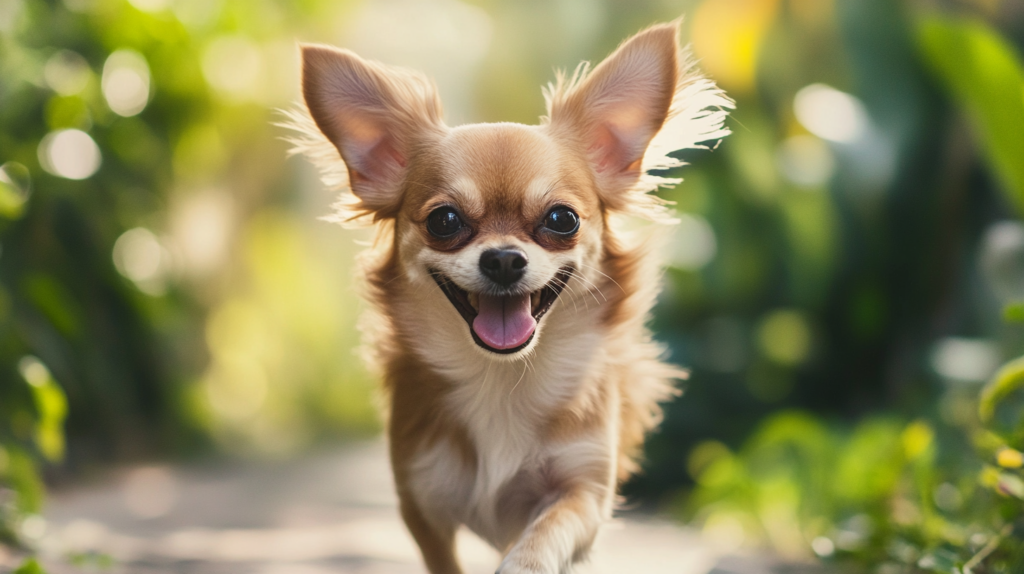
Understanding the Chihuahua Breed
Chihuahuas are tiny dogs with big personalities! Here’s a closer look at their characteristics, average lifespan, and temperament.
Characteristics of Chihuahuas
- Size: Weighing between 2 to 6 pounds and standing about 5 to 8 inches tall, they are one of the smallest dog breeds.
- Coat Varieties: Available in both short and long-haired options, each requiring different grooming needs.
- Colors: Their coats come in a rainbow of hues, including fawn, black, chocolate, and more.
Average Lifespan and Health Expectations
Chihuahuas can live an impressive 12 to 20 years when provided with proper care. Regular vet visits are essential as they may face health issues such as:
- Luxating patellas
- Heart disease
- Eye problems
Temperament and Behavior Traits
These little companions are known for their vibrant personalities. Common Chihuahua personality traits include:
- Loyalty: They form strong bonds with their owners.
- Alertness: Excellent watchdogs despite their size.
- Confidence: Often fearless, they may take on much larger dogs!
Understanding these traits can help you tailor your care approach to keep your Chihuahua happy and healthy.
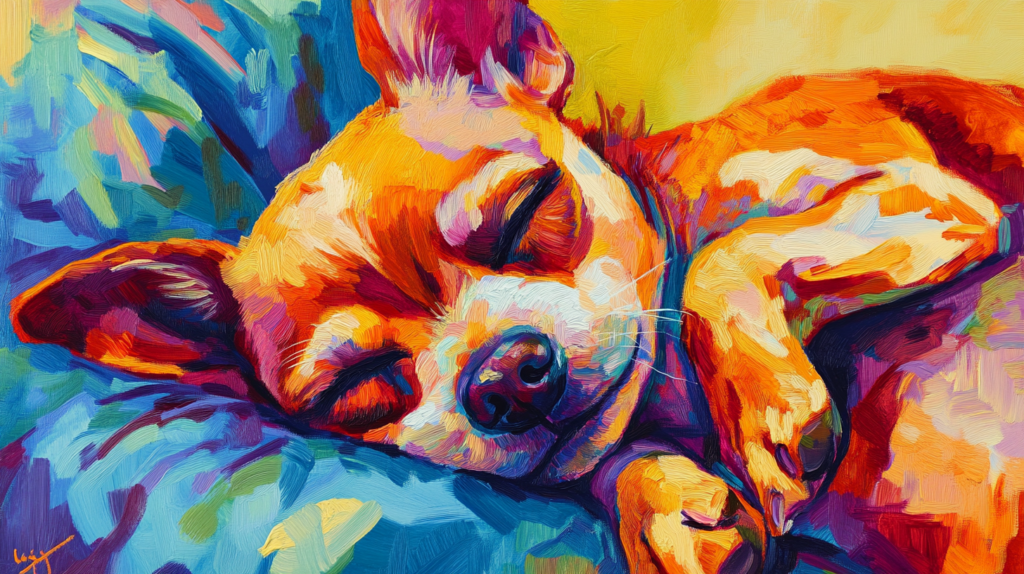
Feeding Your Chihuahua: A Comprehensive Guide to Their Nutritional Needs
Chihuahuas are tiny bundles of joy, and just like any other breed, they require a balanced diet to thrive. Proper nutrition is crucial for their overall health, energy levels, and longevity. Let’s explore some essential aspects of feeding your Chihuahua.
Importance of a Balanced Diet
A well-rounded Chihuahua diet not only supports their physical health but also contributes to their mental well-being. A nutritious meal helps maintain healthy skin and coat, boosts the immune system, and reduces the risk of obesity and related health issues. With Chihuahuas being prone to certain conditions like heart disease and dental problems, ensuring they receive the right nutrients is crucial.
Recommended Daily Food Intake
When it comes to portion sizes, Chihuahuas typically need about 1/4 to 1/2 cup of high-quality dry dog food daily. This amount can vary based on age, weight, activity level, and individual metabolism. Smaller portions spread throughout the day can aid in optimal digestion.
Meal Frequency Recommendations
Puppies are especially susceptible to hypoglycemia (low blood sugar), making meal frequency vital. Here’s a suggested schedule:
- Puppies (up to 6 months): 3-4 meals per day.
- Young adults (6 months to 1 year): 2-3 meals per day.
- Adults (1 year and older): 2 meals per day.
Dividing meals prevents sudden drops in blood sugar while keeping your furry friend energized throughout the day.
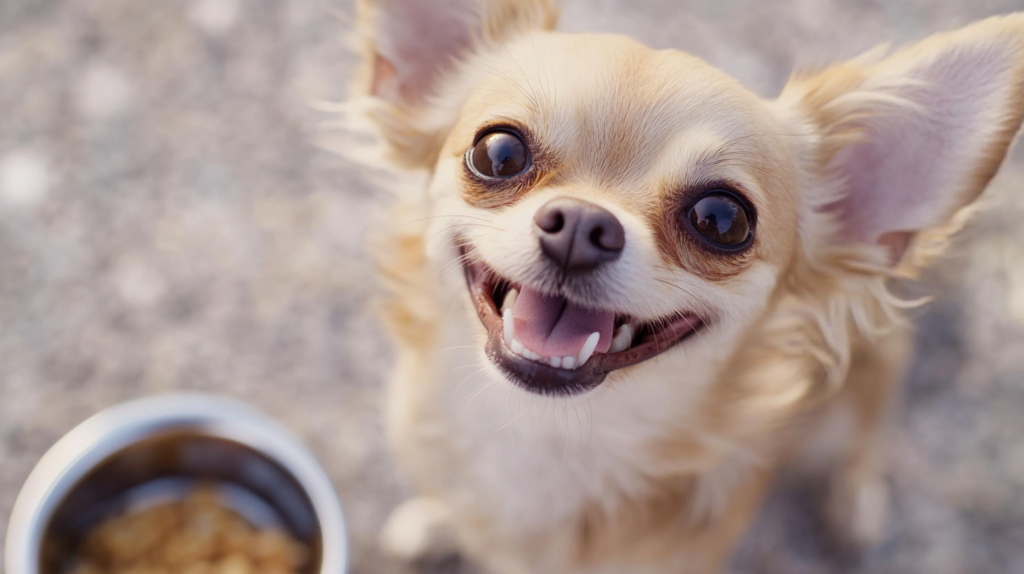
Best Practices for Choosing the Right Type of Dog Food for Your Chihuahua
Selecting suitable dog food can feel overwhelming with so many options available. Here are some tips tailored specifically for your little companion:
- Look for high-quality ingredients: Opt for foods with real meat as the first ingredient. Avoid fillers like corn or soy that offer little nutritional value.
- Check for AAFCO approval: Ensure the food meets standards set by the Association of American Feed Control Officials (AAFCO). This indicates that it provides complete nutrition.
- Consider life stage: Puppies have unique nutritional needs compared to adults. Select formulas designed for their specific age group.
- Evaluate size-specific formulas: Some brands offer small breed recipes tailored to Chihuahuas’ dietary requirements, supporting healthy growth without excess calories.
Tips on Choosing the Right Type of Dog Food
Your Chihuahua’s needs change over time. Here’s how you can adapt their diet accordingly:
- Monitor weight regularly: Adjust portions based on your pup’s weight and activity level. If they seem sluggish or gain weight, consider reducing treats or portion sizes.
- Consult your vet: Regular check-ups can ensure you’re meeting your Chihuahua’s specific nutritional needs. Your veterinarian may recommend special diets if any health issues arise.
- Be cautious with treats: Treats should not exceed 10% of their daily caloric intake. Healthy options include small pieces of fruits or veggies and low-calorie dog treats.
By focusing on proper nutrition through a well-balanced diet, you contribute significantly to your Chihuahua’s health maintenance and happiness!
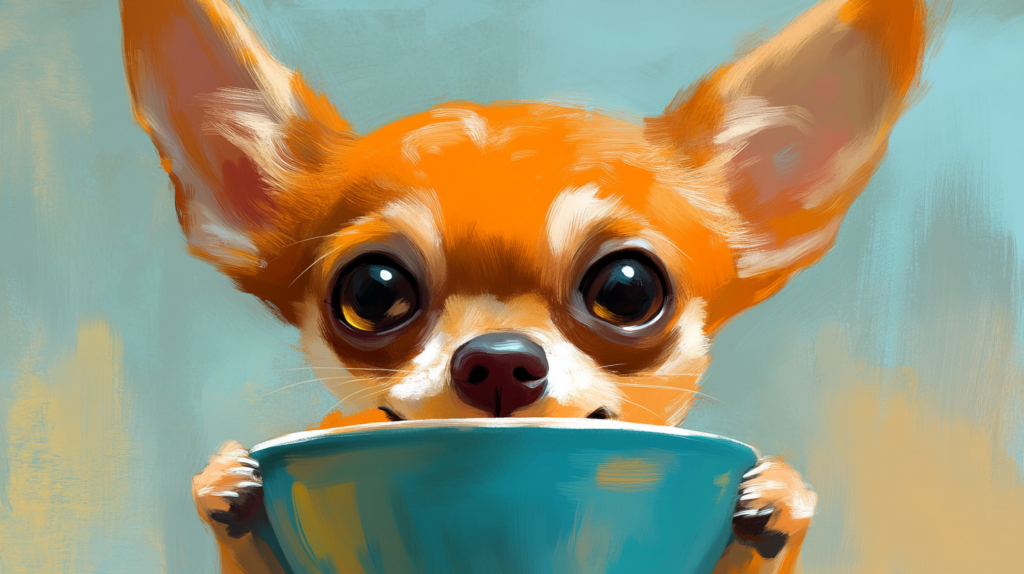
Grooming Your Chihuahua: Keeping Their Coat and Teeth Healthy and Beautiful
Taking care of your Chihuahua’s grooming needs is essential for their health and happiness. Depending on their coat type, the grooming frequency can vary significantly.
Short-Haired Chihuahuas
- Brushing: A weekly brush is typically sufficient. This helps remove loose hair and distribute natural oils, keeping their coat shiny.
- Bathing: These little cuties can be bathed about once a month or as needed. Use a gentle dog shampoo to avoid skin irritation.
Long-Haired Chihuahuas
- Brushing: Expect more frequent grooming, ideally 2 to 3 times a week. This prevents matting and tangles while keeping their luxurious fur in top shape.
- Bathing: A bath every 3 to 4 weeks is recommended, but it may be necessary to bathe them more often if they enjoy outdoor adventures.
Dental Care
Don’t forget those pearly whites! Regular teeth brushing is crucial for preventing dental issues. Aim for:
- Daily brushing if possible; if not, at least a few times a week using dog-friendly toothpaste. For effective techniques, refer to this guide on how to brush your dog’s teeth.
- Dental chews as a fun way to help keep their teeth clean while satisfying their chewing instincts.
Prioritizing Chihuahua coat care and dental hygiene not only enhances their appearance but also contributes to their overall well-being. Incorporating these health and hygiene care practices into your grooming routine will ensure your furry friend remains happy and healthy. Happy grooming!
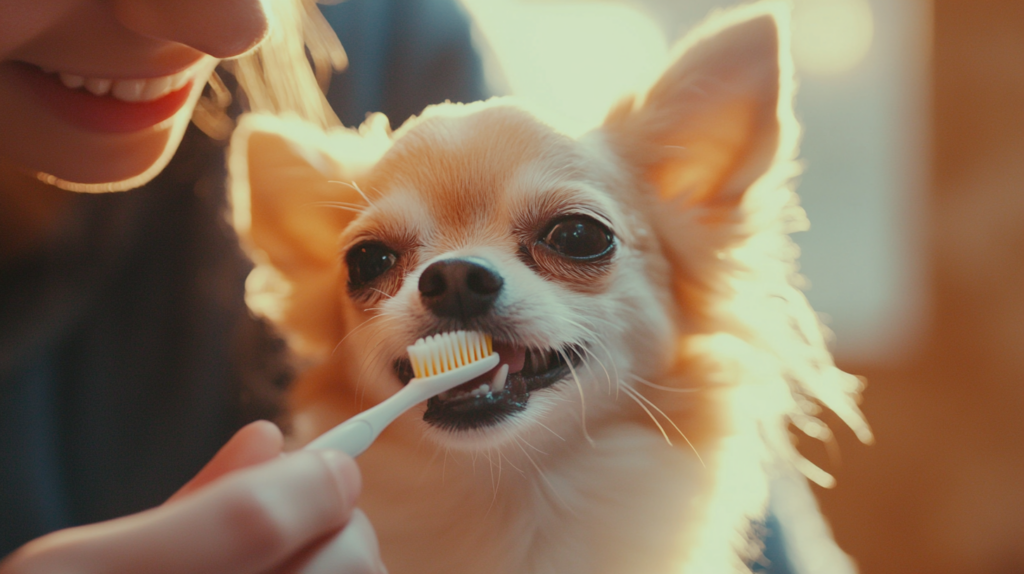
Keeping Your Chihuahua Fit: Understanding Their Exercise Requirements
Chihuahuas may be small, but they have big energy! Ensuring your furry friend gets the right amount of exercise is crucial for their health and happiness. Here’s how to meet those Chihuahua exercise requirements effectively.
Recommended Exercise Routines
Aim for at least 30 minutes of daily exercise. This can be achieved through a combination of:
- Walks: A couple of leisurely strolls around the neighborhood not only provides physical activity but also exposes your pup to new sights and smells.
- Playtime with Toys: Engage them with their favorite toys. Tossing a ball or playing tug-of-war can be great fun and keep those little legs moving!
Fun Activities That Promote Physical and Mental Engagement
Keeping Chihuahuas physically fit also means stimulating their minds. Here are some enjoyable activities that cater to both aspects:
- Interactive Toys: Puzzle toys challenge your Chihuahua’s brain while rewarding them with treats, making playtime doubly rewarding.
- Hide and Seek: This classic game isn’t just for kids! Hide in your home and call your pup. The thrill of finding you will get their heart racing.
Group Activities for Socialization
Consider enrolling your Chihuahua in group activities or classes designed specifically for small breeds. These interactions are perfect for enhancing your pup’s social skills while providing valuable exercise. Some exciting options include:
- Agility Courses: These fun challenges enhance physical strength and coordination while building confidence.
- Puppy Playdates: Arrange playdates with other small dogs to encourage socialization for Chihuahuas. Supervised play helps develop good behavior patterns around other pets.
Creating a balanced routine that incorporates both physical and mental stimulation will significantly contribute to keeping your Chihuahua healthy and happy. With the right activities, you’ll not only meet their daily exercise needs but also strengthen the bond between you and your tiny companion!
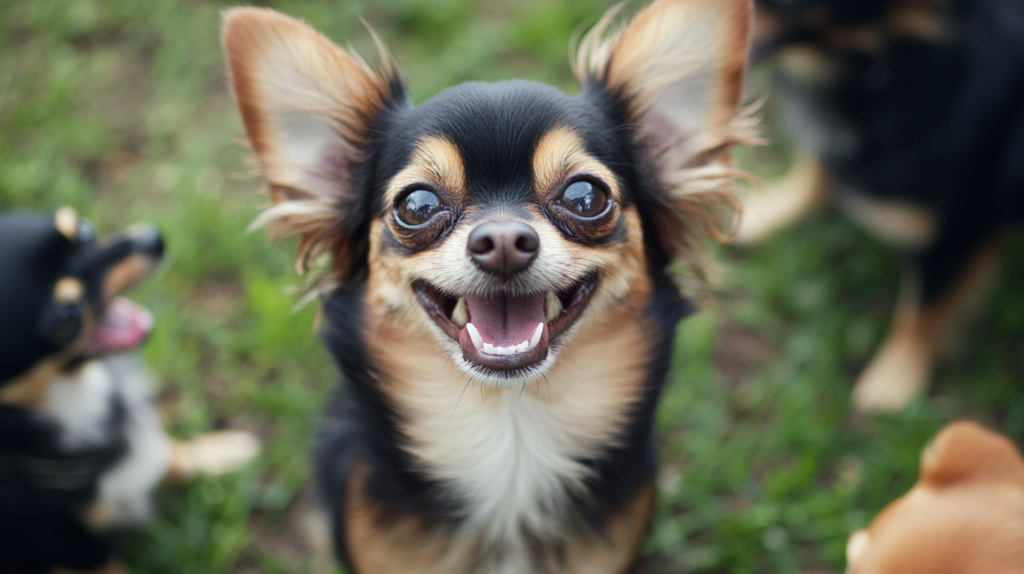
Creating a Comfortable Living Environment For Your Chihuahua’s Happiness
Ensuring a happy home for your Chihuahua involves understanding their unique needs. Here are some essential considerations:
Space Requirements
- Small but Mighty: Chihuahuas thrive in cozy spaces. They don’t require vast areas to roam but do need a safe environment where they can explore.
- Safe Zone: Create a designated area with comfortable bedding and toys. This gives them a retreat for relaxation.
Temperature Control
- Stay Cozy: Chihuahuas are sensitive to temperature extremes.
- Warm Up: Keep them warm during colder months with sweaters or blankets.
- Cool Down: Provide shade and ensure they stay hydrated during hot weather.
Engagement and Interaction
- Social Butterflies: Chihuahuas adore companionship. Regular interaction prevents loneliness and anxiety.
- Playtime Essentials: Incorporate toys that stimulate their minds, like puzzles or squeaky toys, to keep them entertained.
Breeding Considerations
When considering breeding, focus on responsible practices that prioritize health and temperament. It’s important to consider adopting from a rescue as this not only provides a home for a dog in need but also helps in controlling the pet population.
Creating an environment tailored to your Chihuahua’s needs fosters happiness, making it easier for them to thrive in your home!
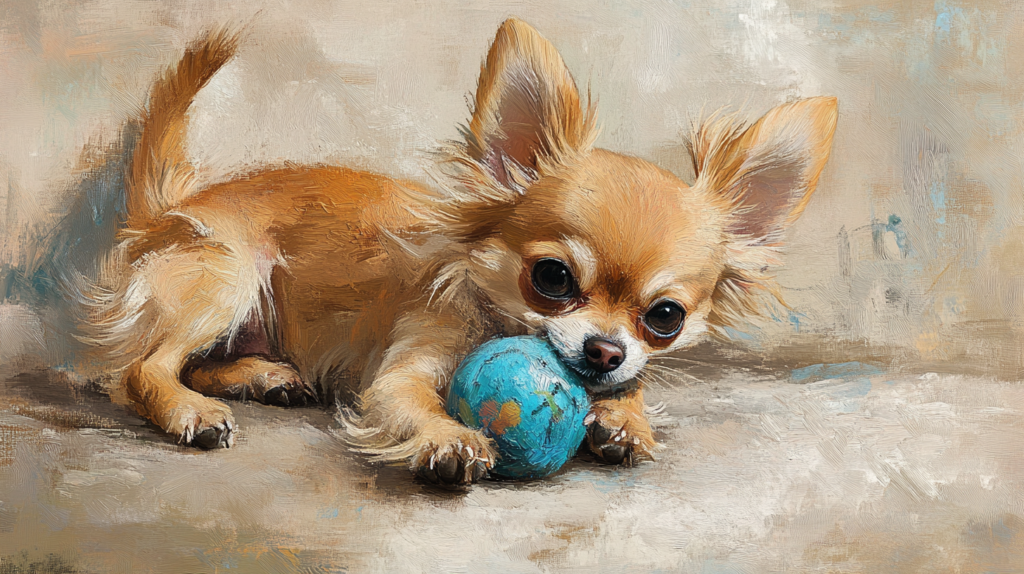
Additional Tips to Ensure a Long and Healthy Life For Your Beloved Chihuahua
Caring for a Chihuahua goes beyond day-to-day routines. Integrating preventive health measures is essential for their longevity and happiness.
Spaying/Neutering
- Health Benefits: Spaying or neutering your Chihuahua can prevent certain cancers and reduce the risk of behavioral issues. This procedure can also help decrease the likelihood of roaming, which often leads to accidents.
- Timing: Consult with your veterinarian for the ideal age to perform these surgeries based on your dog’s health and development.
Vaccinations
- Preventive Care: Vaccinations are crucial in protecting against diseases that are common and potentially fatal in Chihuahuas, such as parvovirus, distemper, and rabies.
- Schedule: Follow the vaccination schedule recommended by your veterinarian. Regular booster shots help ensure lasting immunity.
Veterinary Advice for Chihuahua Owners
Regular veterinary check-ups are vital for early detection of health issues. Chihuahuas are prone to specific conditions like dental problems and heart disease. A proactive approach includes:
- Routine Dental Care: Regular professional cleanings and at-home dental care can prevent severe oral health issues.
- Monitoring Weight: Keeping an eye on your Chihuahua’s weight helps avoid obesity-related health concerns.
Investing time in these preventive measures promotes a thriving life for your delightful companion.
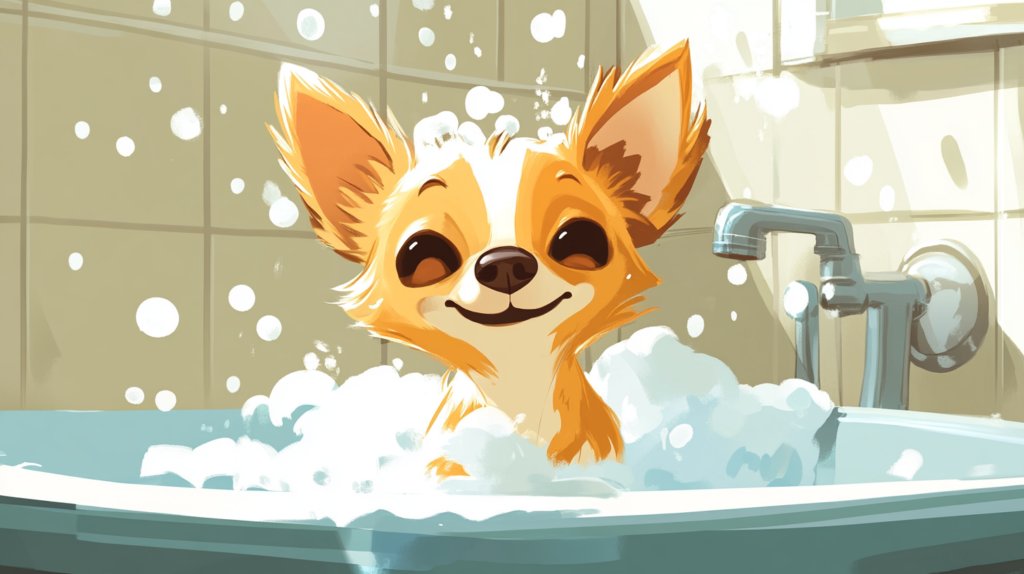
Conclusion: Prioritizing Comprehensive Care For a Happy And Healthy Chihuahua Lifestyle
Caring for your Chihuahua is not just about meeting basic needs; it’s about cultivating a joyful and healthy life.
- Health vigilance is essential. Regular vet visits help catch potential issues early, ensuring your furry friend stays vibrant.
- A balanced diet fuels their energetic spirit. Quality food contributes to their longevity and happiness.
- Grooming keeps their coat shiny and their teeth healthy, preventing common dental problems.
- Routine exercise promotes physical fitness and mental stimulation, essential for a well-rounded pup.
Embracing these care elements transforms Chihuahua ownership into a delightful journey of companionship and love.
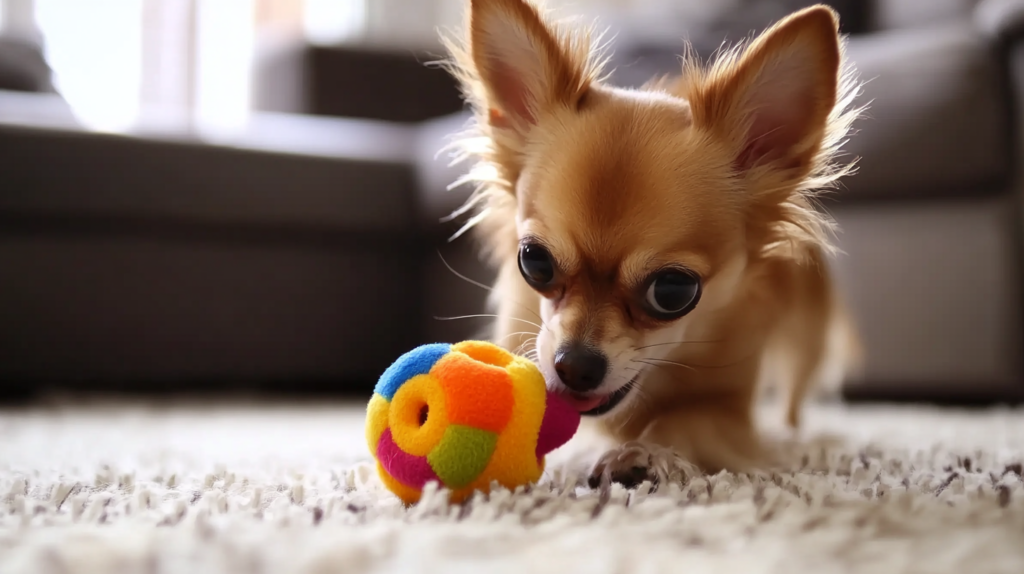
FAQs (Frequently Asked Questions)
What are the key personality traits of Chihuahuas?
Chihuahuas are known for their lively and confident personality. They can be affectionate and loyal to their owners, often forming strong bonds. Despite their small size, they may exhibit a bold demeanor and can be quite vocal.
How long do Chihuahuas typically live?
The average lifespan of a Chihuahua is around 12 to 20 years, depending on factors such as genetics, diet, exercise, and overall care. With proper attention and veterinary care, many Chihuahuas can live long and healthy lives.
What should I feed my Chihuahua for optimal health?
A balanced diet is crucial for Chihuahuas. It is recommended to feed them 1/4 to 1/2 cup of high-quality dry dog food daily, divided into two meals to prevent hypoglycemia. Always choose food that caters to their specific needs based on age and size.
How often should I groom my Chihuahua?
Grooming frequency varies based on coat type. Short-haired Chihuahuas require less frequent brushing compared to long-haired ones, which may need regular brushing and occasional baths. Dental care is also essential, so regular teeth cleaning should be part of your grooming routine.
What are the exercise requirements for a Chihuahua?
Chihuahuas require daily exercise of about 30 minutes. This can include walks or playtime with toys. Socialization activities like puppy playdates or agility courses can also contribute positively to their physical and mental well-being.
What living conditions are best for my Chihuahua’s happiness?
Chihuahuas thrive in comfortable living environments that provide adequate space and temperature control. They prefer cozy spots where they can feel secure, away from drafts or extreme temperatures. Ensuring a safe and stimulating environment is key to their happiness.






